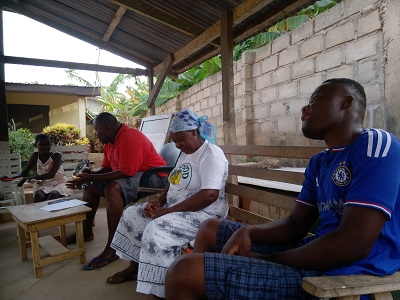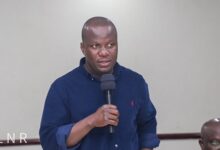
Most churches across the country yesterday resorted to the use of electronic and social media in transmitting messages to their congregants in compliance to the ban on public gatherings.
With uplifting sermons, pastors through media like Facebook, Instagram and televised broadcast comforted their members in these trying times assuring them of light at the end of the tunnel.
President Akufo-Addo in the wake of the coronavirus (COVID-19) banned all public gatherings for the next four weeks including conferences, workshops, funerals, festivals, political rallies, sporting events and religious events such as services in churches and mosques.
The Ghanaian Times keenly monitored messages by preachers of various churches including the Presbyterian Church of Ghana (PCG); Pentecost Church; Assemblies of God; Methodist Church, Ghana; International Central Gospel Church (ICGC); Royal House Chapel; Abundant Life Worship Centre (ALWC) and Perez Dome International and these were what they had to say.
For the Church of Pentecost, live streaming started on their station, PENT TV as early as 7:00 am with the children leading their own service with the aid of a teacher.
Worship, praises and the sharing of the word was done by the children who encouraged their colleagues to be safe in these times and abide by all precautionary measures given them.
At exactly 8:00am the immediate past Chairman of the church, Dr Opoku Onyinah centering his scriptures on Numbers 2:7 preached on having faith in God following the alarming rate of cases.
His sermon themed; “There is still hope in Christ”, encouraged members to build their faith in the Lord at this crucial moment of their lives as he alone was able to save them.
Moderator of the PCG, Rt Rev. Prof. Joseph Obiri Yeboah Mante speaking on the theme; “I will fear no evil” from Psalm 23 asked Ghanaians to learn from the current situations and not live in denial.
He acknowledged God as a “specialist in crisis situation” and if there was a time to trust and hope in the Lord, now was it.
“If we keep panicking, it would not solve the problem. Let us adhere to the regulations given by the Health Ministry and take them seriously because they are words of wisdom,” he said.
Furthering on, Pastor Mensa Otabil, General Overseer of the ICGC, urged Ghanaians to be patient in “walking through” the present situation as “we will definitely exit.”
Taking inspiration from Psalm 23:4 where God assures Christians of being a rod and staff to comfort them, the pastor used the rod to represent the directives taken by government to contain the disease, including the ban on public gatherings while the precautionary measures given by health experts symbolised the “staff” which must be adhered to, to combat the disease.
“We can pray all we want, but if we do not apply the measures to contain the disease, we will still be in danger so we must all take these times seriously. These four weeks will be critical for our country and we ought to do everything to make the rod and staff work for us.”
For the General Superintendent of the Assemblies of God, Rev. Prof. Paul Frimpong Manso, the churches’ compliance to the President’s directive not to hold services cannot be said to be cowardice on the part of the church.
Basing on Romans 13, the Minister said the posture of the church is in obedience to God’s word to honour authority.
The Apostle General, Rev. Sam Korankye rallied members to adhere to the President’s declaration of Wednesday, March 25 for a national day of fasting and prayer.
In separate interviews with some Ghanaian who patronised various live streaming channels for service, though the feeling could not be compared to being in a live church, the messages preached by their pastors was timely under the circumstance.
Mr Henry Dickson, a member of the ICGC admitted the few weeks ahead would be different saying, “our lives is characterised by attendance at Sunday church but now, we may not be able to fellowship and pray with people in the ways that we are used to, though we can certainly pray from home.”
Maame Nyarkoa of ALWC said though the intervention of the churches to resort to social media was timely it could never be replaced by the face to face contact with fellow congregants and head pastors.
BY ABIGAIL ANNOH AND BENEDICTA FOLLEY







